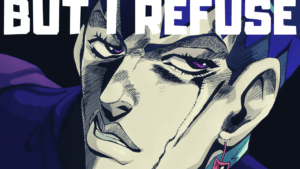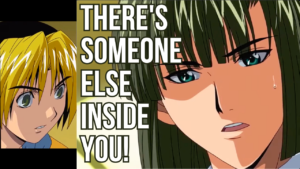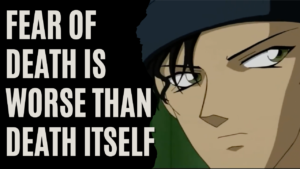Let’s learn Japanese with Olivia’s quote from Asobi Asobase.
CONTENTS
Video
Olivia’s Quote
Japanese: ブランコだめって言ってなかったよね?
Romaji: buranko damette ittenakatta yone?
English: You never said no swings, right?
Analysis
ブランコ means “swings”.
だめ means “no good” or “not allowed”. So, ブランコだめ means “no swings” or “swings not allowed”.
って is a casual version of the quotation particle と, usually followed by a verb like 言う, 聞く, 思う, and so on.
言ってなかった is the same as 言っていなかった meaning “wasn’t/weren’t saying”. It’s the negative form of 言っている (is/are saying). In casual speech, the い is often omitted. In this context, you can also use the simple past tense 言わなかった meaning “didn’t say”. 言わなかった is used to focus on the action of saying, whereas 言ってなかった is used to focus on what she actually said at the moment. But in this case, it’s just a subtle nuance difference so either way is fine.
よね is the combination of the sentence ending particles よ and ね, meaning “right?”. I will quickly explain how each particle is used.
- よ is used when you want to tell something that you think the listener doesn’t know.
- ね is used when you want to share or agree something with the listener.
- よね is used when you want to confirm what you think is the same as what the listener thinks.
Now try this quiz. Which answer is best when your friend invites you to go for a drink? A: いいよ B: いいね C: いいよね – The best answer is B: いいね as you want to show that you agree with your friend that it’s a nice idea. You can also say いいよ but it sounds a bit cold as you’re just saying that you are OK about it without showing that you are happy about it. いいよね is wrong as it’s not something you want to confirm.
Examples
って (casual version of quotation particle と)
たこ焼き食べたいって言ってたから、買ってきたよ。
takoyaki tabetaitte itteta kara, katte kita yo.
You said you wanted to eat takoyaki so I bought it for you.
彼氏と別れたって友達から聞いたよ。何があったの?
kareshi to wakaretatte tomodachi kara kiita yo. nani ga atta no?
I heard from a friend that you broke up with your boyfriend. What happened?
この音楽を聞くと、また頑張ろうって思える。
kono ongaku o kiku to, mata ganbarōtte omoeru.
When I listen to this music, it makes me think I can keep going.
よね (used to confirm what you think is the same as what the listener thinks)
ゲームの前に宿題するって言ったよね!?
gēmu no mae ni shukudai surutte itta yone?!
You told me that you would do your homework before playing games, didn’t you?!
今日は曇ってるけど、明日は晴れるよね。
kyō wa kumotteru kedo, ashita wa hareru yone.
It’s cloudy today but it’s going to be sunny tomorrow, right?
前から思ってたけど、あいつ化粧濃いよね。
mae kara omotteta kedo, aitsu keshō koi yone.
I’ve always thought that she puts too much make-up on, right?
Support Easy Peasy Japanesey
If you enjoy our content, please consider supporting Easy Peasy Japanesey. Your support will help keep us going. Thank you for your support!


